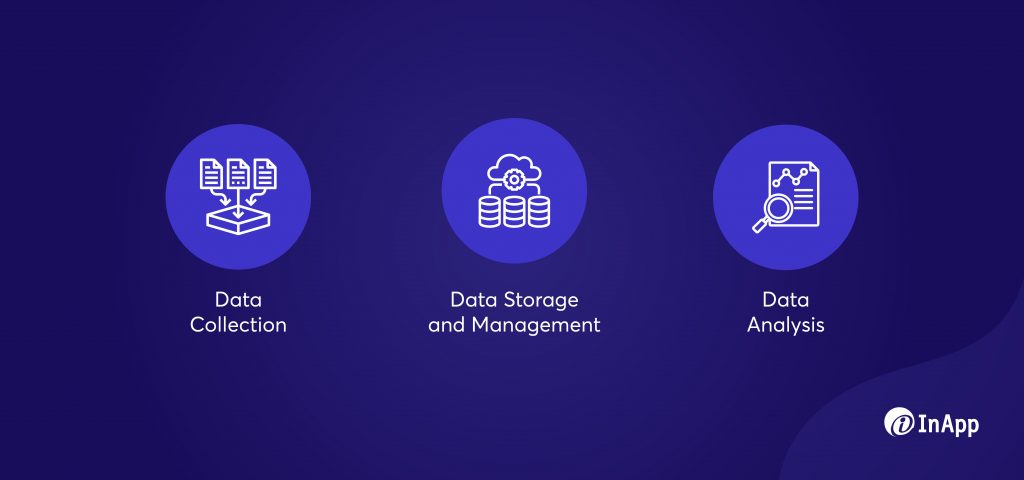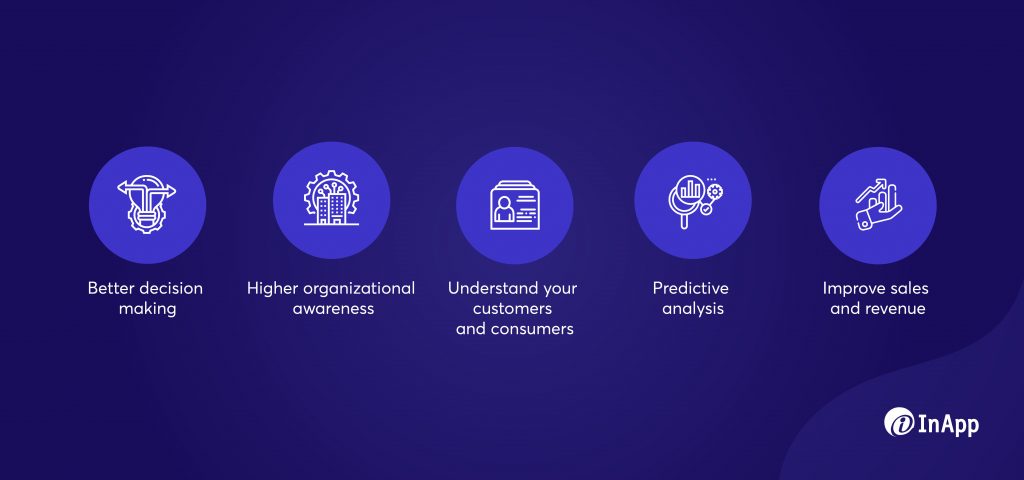Data is the new gold. From personal information to health records, financial activity, and everything in between – everything is data. Even abstract things like thoughts, opinions, preferences, friendships and connections have been turned into data with social media. This process of turning things into data is called ‘datafication.’
Coined in 2013, datafication is a broad term that has become prevalent in every aspect of our life because almost anything can be recorded and processed as digital data nowadays. But its significance is much higher in the context of businesses and industries. For companies, datafication is the process of shifting towards a data-driven approach in every possible way.
Data extraction, collection, storage, and processing were difficult a few years back. But, with the advent of technologies, it is much easier and more efficient to deal with tons of data, thus assisting in datafication. Let’s look at how datafication is transforming business operations today.
What Datafication Means for Businesses
Data is prevalent. Whether healthcare, finance, or education, every industry deals with immeasurable amounts of data. However, datafication doesn’t just end with collecting data, rather, it starts from here.
For businesses, datafication means putting ‘data’ at the heart and core of your business through three key aspects:

1. Data Collection
The first step towards datafication is for businesses to find more ways to collect valuable data that is relevant to the organization’s primary objectives. Of course, this implies that you must first lay out clearly defined objectives to determine what data is relevant and valuable.
2. Data Storage and Management
As companies start collecting more and more data, they also need proper infrastructure to store and manage their database. It could be cloud services, third-party data management solutions, or in-house data centers.
3. Data Analysis
Perhaps the most important aspect of datafication is the proper analysis of data, so companies can derive useful information and insights from it that can help them make key decisions and formulate data-driven strategies.
Here are a few examples of datafication in different business areas:
Recruitment
Analysis of applicants’ data collected from their resumes, social media presence, and past employment history can help recruiters make better hiring decisions. Even the personality and mindset of candidates can be analyzed through tweets and social media posts.
Employee satisfaction
Although employee satisfaction is not a tangible aspect of an organization, it can still be measured through metrics such as Employee Satisfaction Index (ESI) and Employee Net Promoter Score (eNPS) based on data obtained by conducting surveys, collecting feedback from employees, preparing regular performance reports, checking the turnover rates, etc.
Risk-analysis
In sectors like banking, finance, and insurance, companies are already collecting consumer and client data to create risk profiles, which helps them decide eligibility for loans, credit cards, insurance policies, etc.
These are just a few examples that highlight the true essence of datafication. Businesses should strive to turn into a data-driven enterprise, where most, if not all, key decisions and strategies are aided by valuable insights and information derived from collecting, managing, and analyzing large amounts of relevant data.
How Can Datafication Transform Businesses?
Datafication is the first step towards big data analytics. Look at global giants such as Amazon and Netflix; you’ll find that big data analytics has been one of the most instrumental factors in their massive success. Many large and small companies have been following their steps and turning towards big data services in recent years.
So any business that wants to harness the power of big data must embrace datafication, as it has the potential to transform an organization in many ways, such as:

- Better decision making
Analysis of large amounts of diverse data helps businesses get clear insights into their performance and identify areas where they are lacking, thus helping them make accurate, data-driven decisions for the company’s growth.
- Higher organizational awareness
It’s not uncommon for stakeholders and decision-makers to be unaware of their own company’s strengths, weaknesses, priorities, and key objectives, especially in large-scale organizations. Through datafication, you have constant access to real-time business data that will keep you well informed and aware of your organization’s key areas.
- Understand your customers and consumers
Thanks to digital technology, businesses now have easy access to an ocean of data regarding their consumer’s and customers’ behavior, preferences, and even various personal and demographic information. This helps them understand and deliver exactly what their target audience needs and wants.
- Predictive analysis
One of the most significant benefits of datafication is that it improves an organization’s ability to predict outcomes accurately. Analysis of past data, trends, and patterns has proven to be extremely useful in predicting the success of important decisions, events, and strategies.
- Improve sales and revenue
The end goal of most businesses, at the end of the day, is to increase sales, profits, and revenue. As a combination of all the above points, when businesses can make better decisions, stay well-informed about their strengths and shortcomings, gain clear insights into the behavior of their target audience, and be able to predict future outcomes, the assimilation of all these factors will obviously lead to higher conversion and increased revenue in the long run.
Businesses Must Make the Shift Towards Datafication
In the present day and age, it has become essential for businesses to datafy their operations in all areas. And to make things better, there are already a lot of tools, processes, and big data development services that help companies make a smooth and seamless transition toward data-driven business models. Datafication may sound like high-tech terminology, but its implementation isn’t complicated. Digital technology has made generating, collecting, and accessing data easier than ever. There’s no shortage of data management solutions, with cloud servers emerging as one of the most ideal and cost-efficient storage options for big data. And with advancements in AI based on deep learning neural networks, computers are getting more efficient at analyzing large amounts of data at high speeds. Businesses today have everything they need to make a positive transformation through datafication.
